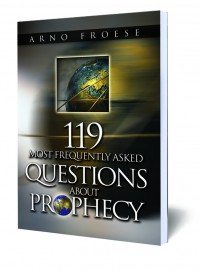Will Rome be the capital of the New World Order?
First, we must understand that Rome plays a much greater role than just being the capital city of Italy. The Roman system dominates four of the world's five continents. Europe, Africa, America and Australia can be considered as predominantly European. The languages are European and their constitutions, systems of law and business practices are all based on Roman laws.
But the Asian continent also depends upon European philosophies and laws. Asian nations are likely to use a European language to communicate with each other. The implementation of laws and conducting of businesses are firmly grounded on Roman principles as well.
Ancient Rome brought the highest glory to Europe. And Europe is the only continent that has permanently molded the nations of the world. The Africans did not establish colonies in America, nor did the Asians do so in Africa, but the Europeans, which we can rightfully call Romans, colonialized almost the entire world.
The July 1997 issue of National Geographic published an interesting article on Rome. We quote:
Roman Origins
“We know that early on, the Romans were ruled by the Etruscans, a powerful nation of central Italy. Chafing under an often brutal monarchy, the leading families of Rome finally overthrew the Etruscan kings - a revolution that would influence, some 2,200 years later, the thinking of Thomas Jefferson and George Washington.
“In the year 244 AUC (that is, 509 B.C.) the patrician families of Rome set up a quasi-representative form of government, with a pair of ruling consuls elected for a one-year term. This marked the beginning of the Roman Republic, a form of government that would continue until Julius Caesar crossed the Rubicon 460 years later. Those five centuries were marked by increasing prosperity and increasing democracy.”
Rights and Duties of Citizens
“Within the broad sweep of uniformity, Roman administration at the local level was flexible, tolerant, and open.
“When Rome conquered a new province, the defeated general and his army were carted away in chains; almost everyone else came out ahead. The local elite were given positions in the Roman hierarchy. Local businesses gained the benefit of Roman roads, water systems, the laws of commerce and the courts. Roman soldiers guarded the town against pirates and marauders. And within a fairly short period, many of the provincial residents would be made cives Romani - citizens of Rome - with all the commensurate rights and duties.”
Literacy and Law
“The ideal of written law as a shield - to protect individuals against one another and against the awesome power of the state - was a concept the Romans took from the Greeks. But it was Rome that put this abstract notion into daily practice, and the practice is today honored around the world.”
Rome - U.S.A.
“The Roman process of making laws also had a deep influence on the American system. During the era of the Roman Republic (509 to 49 B.C.) lawmaking was a bicameral activity. Legislation was first passed by the comitia, the assembly of the citizens, then approved by the representative of the upper class, the senate, and issued in the name of the senate and the people of Rome. Centuries later, when the American Founding Fathers launched their bold experiment in democratic government, they took republican Rome as their model. Our laws, too, must go through two legislative bodies. The House of Representatives is our assembly of citizens, and, like its counterpart in ancient Rome, the U.S. Senate was originally designed as a chamber for the elite (it was not until the 17th Amendment, in 1913, that ordinary people were allowed to vote for their senators).”
When we understand from Daniel 2 that the fourth kingdom shall subdue all things, and we compare it factually with Roman influence, we see the great significance of the Roman system.















